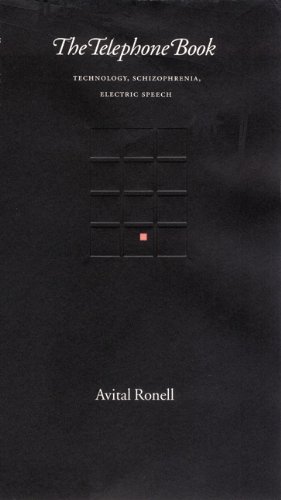Neil Rhodes, Jonathan Sawday (eds.): The Renaissance Computer: Knowledge Technology in the First Age of Print (2000)
Filed under book | Tags: · history of technology, hypertext, knowledge, memory, print, renaissance, storage, technology

In the fifteenth century the printing press was the ‘new technology’. The first ever information revolution began with the advent of the printed book, enabling Renaissance scholars to formulate new ways of organising and disseminating knowledge.
As early as 1500 there were already 20 million books in circulation in Europe. How did this rapid explosion of ideas impact upon the evolution of new disciplines?
The Renaissance Computer looks at the fascinating development of new methods of information storage and retrieval which took place at the very beginning of print culture. And it asks some crucial questions about the intellectual conditions of our own digital age. A dazzling array of leading experts in Renaissance culture explore topics of urgent significance today, including:
* the contribution of knowledge technologies to state formulation and national identity
* the effect of multimedia, orality and memory on education
* the importance of the visual display of information and how search engines reflect and direct ways of thinking.
Publisher Routledge, 2000
ISBN 0415220637, 9780415220637
212 pages
Avital Ronell: The Telephone Book: Technology, Schizophrenia, Electric Speech (1989)
Filed under book | Tags: · history of technology, psychoanalysis, schizophrenia, speech, technology, telephone

“The telephone marks the place of an absence. Affiliated with discontinuity, alarm, and silence, it raises fundamental questions about the constitution of self and other, the stability of location, systems of transfer, and the destination of speech. Profoundly changing our concept of long-distance, it is constantly transmitting effects of real and evocative power. To the extent that it always relates us to the absent other, the telephone, and the massive switchboard attending it, plugs into a hermeneutics of mourning. The Telephone Book, itself organized by a “telephonic logic,” fields calls from philosophy, history, literature, and psychoanalysis. It installs a switchboard that hooks up diverse types of knowledge while rerouting and jamming the codes of the disciplines in daring ways. Avital Ronell has done nothing less than consider the impact of the telephone on modern thought. Her highly original, multifaceted inquiry into the nature of communication in a technological age will excite everyone who listens in.
The book begins by calling close attention to the importance of the telephone in Nazi organization and propaganda, with special regard to the philosophy of Martin Heidegger. In the Third Reich the telephone became a weapon, a means of state surveillance, “an open accomplice to lies.” Heidegger, in Being and Time and elsewhere, elaborates on the significance of “the call.” In a tour de force response, Ronell mobilizes the history and terminology of the telephone to explicate his difficult philosophy.
Ronell also speaks of the appearance of the telephone in the literary works of Duras, Joyce, Kafka, Rilke, and Strindberg. She examines its role in psychoanalysis—Freud said that the unconscious is structured like a telephone, and Jung and R. D. Laing saw it as a powerful new body part. She traces its historical development from Bell’s famous first call: “Watson, come here!” Thomas A. Watson, his assistant, who used to communicate with spirits, was eager to get the telephone to talk, and thus to link technology with phantoms and phantasms. In many ways a meditation on the technologically constituted state, The Telephone Book opens a new field, becoming the first political deconstruction of technology, state terrorism, and schizophrenia. And it offers a fresh reading of the American and European addiction to technology in which the telephone emerges as the crucial figure of this age.”
Publisher University of Nebraska Press, 1989
ISBN 0803289383, 9780803289383
466 pages
PDF (8 MB, added on 2015-7-21)
DJVU (9 MB, updated on 2012-8-5)
Doron Swade: The Difference Engine: Charles Babbage and the Quest to Build the First Computer (2001)
Filed under book | Tags: · computing, history of computing, history of mathematics, history of technology, mathematics

In 1821 an inventor and mathematician named Charles Babbage was reviewing a set of mathematical tables. After finding an excess of errors in the results, he exclaimed, “I wish to God these calculations had been executed by steam.” Thus began Babbage’s lifelong enterprise to design and build a mechanical calculating engine-the world’s first computer. Drawing on Babbage’s original notes and designs, Doron Swade recounts both Babbage’s nineteenth-century quest to build a calculating machine-the Difference Engine-and Swade’s own successful attempt to build a replica for the bicentennial of Babbage’s birth. Set against the tantalizing background of Victorian science and politics with a colorful cast of characters, The Difference Engineis a saga of ingenuity and will-and the dawning of a new age.
Publisher Penguin Books, 2001
ISBN 0670910201
342 pages
PDF (DJVU; updated on 2012-7-25)
Comment (1)
